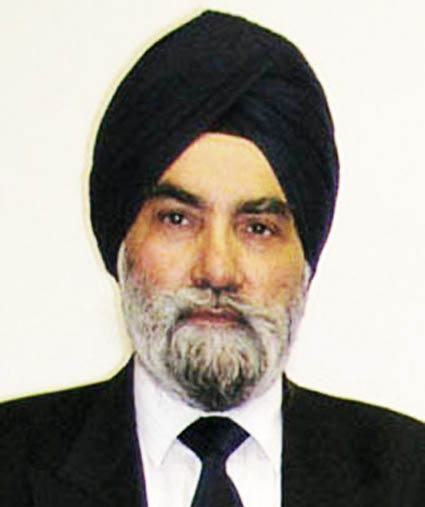Panjab Times UK, Panjabi Language and Cultural Link To Our Roots

(ਪੰਜਾਬ ਟਾਇਮਜ਼, ਪੰਜਾਬੀਆਂ ਦੇ ਹੱਕਾਂ ਦਾ ਪਹਿਰੇਦਾਰ)
A copy of the Panjab Times on the coffee table of a UK Sikh home sends a positive Sikh heritage (virsa) message to the family and visitors. Depending on their age group and language literacy, they look at the glossy images of Sikh events and personalities, make out the headlines and read news and articles of own interest. They feel connected as a family and community and at home.
No reminder should be necessary that well over half a million British Sikhs need national level Panjabi press to ensure community cohesion and defence of British Sikh rights. Last week, Panjab Times office felt it necessary to remind us of this issue. That should be a matter of grave concern for UK Sikh leadership, Gurdwaras and jathebandis.
Panjabi audio-visual media (radio and TV) or translations, do not serve the same purpose as the written word in Panjabi language. The far-sighted first generations, despite low income and hard work while facing discriminatory challenges, build Gurdwaras and started community facilities including the Panjabi media for community cohesion and assertion of Sikh rights in a plural British Society. The importance of these institutions cannot be ignored by next generations.
Panjab Times UK was one such initiative and I recall the great satisfaction of writing the earliest occasional articles in Panjabi. This column and articles in English about wider current topics of Sikh interest were later complementary additions. Otherwise, from own earliest translations (including biography of Bhai Sahib Rama Singh*), it was clear that key Panjabi word-concepts cannot be translated. They must read and understood together with language nuances.
Otherwise, English is our secondary language after Panjabi in Gurmukhi script being our mother tongue and the main language of Sri Guru Granth Sahib. Secondary languages are accepted in Gurbani but not at the expense of our main religio-cultural language, Panjabi.
Regrettably, when our next generations make English as their first and only language then they begin to lose connection with their roots and deprive themselves of the richness, the depth and the wit and humour of own Panjabi language.
As one who has lived abroad from childhood, I agree with a source: Learning your native language enables better communication within your family and community, deepens your understanding of your heritage and culture, and strengthens your personal identity and sense of belonging. It also provides improved problem-solving skills, and can lead to stronger emotional stability and better academic outcomes. Maintaining this language helps the child value his or her culture and heritage, which contributes to a positive self-concept.
The mother language of a child shapes his or her theo-cultural and heritage identity. When deprived of own language important links to the family and own community are lost. The community unity weakens when own language is lost and so does our united power to defend community rights. It is the recitation of Gurbani directly from Sri Guru Granth Sahib which adds depth in meaning. However, that does not diminish the importance of translations of Sikhi literature.
No distinct people like the Sikhs can survive without national level press in own language to achieve community cohesion and collective action to secure our just rights. That is the only way to bridge the generations gap and to seek common direction.
The importance of at least one national level Panjabi weekly in every Sikh home cannot be overstressed. Panjab Times UK serves that need.
*https://library.gurmat.info/download/in-search-of-the-true-guru-bhai-rama-singh.pdf
Gurmukh Singh OBE
E-mail: sewauk2005@yahoo.co.uk
https://www.sikhiwiki.org/index.php/Gurmukh_Singh_OBE